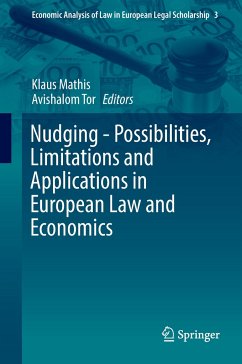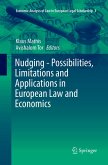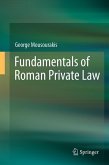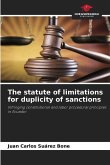This anthology provides an in-depth analysis and discusses the issues surrounding nudging and its use in legislation, regulation, and policy making more generally. The 17 essays in this anthology provide startling insights into the multifaceted debate surrounding the use of nudges in European Law and Economics.
Nudging is a tool aimed at altering people's behaviour in a predictable way without forbidding any option or significantly changing economic incentives. It can be used to help people make better decisions to influence human behaviour without forcing them because they can opt out. Its use has sparked lively debates in academia as well as in the public sphere. This book explores who decides which behaviour is desired. It looks at whether or not the state has sufficient information for debiasing, and if there are clear-cut boundaries betweenpaternalism, manipulation and indoctrination. The first part of this anthology discusses the foundations of nudging theory andthe problems associated, as well as outlining possible solutions to the problems raised. The second part is devoted to the wide scope of applications of nudges from contract law, tax law and health claim regulations, among others.
This volume is a result of the flourishing annual Law and Economics Conference held at the law faculty of the University of Lucerne. The conferences have been instrumental in establishing a strong and ever-growing Law and Economics movement in Europe, providing unique insights in the challenges faced by Law and Economics when applied in European legal traditions.
Nudging is a tool aimed at altering people's behaviour in a predictable way without forbidding any option or significantly changing economic incentives. It can be used to help people make better decisions to influence human behaviour without forcing them because they can opt out. Its use has sparked lively debates in academia as well as in the public sphere. This book explores who decides which behaviour is desired. It looks at whether or not the state has sufficient information for debiasing, and if there are clear-cut boundaries betweenpaternalism, manipulation and indoctrination. The first part of this anthology discusses the foundations of nudging theory andthe problems associated, as well as outlining possible solutions to the problems raised. The second part is devoted to the wide scope of applications of nudges from contract law, tax law and health claim regulations, among others.
This volume is a result of the flourishing annual Law and Economics Conference held at the law faculty of the University of Lucerne. The conferences have been instrumental in establishing a strong and ever-growing Law and Economics movement in Europe, providing unique insights in the challenges faced by Law and Economics when applied in European legal traditions.








